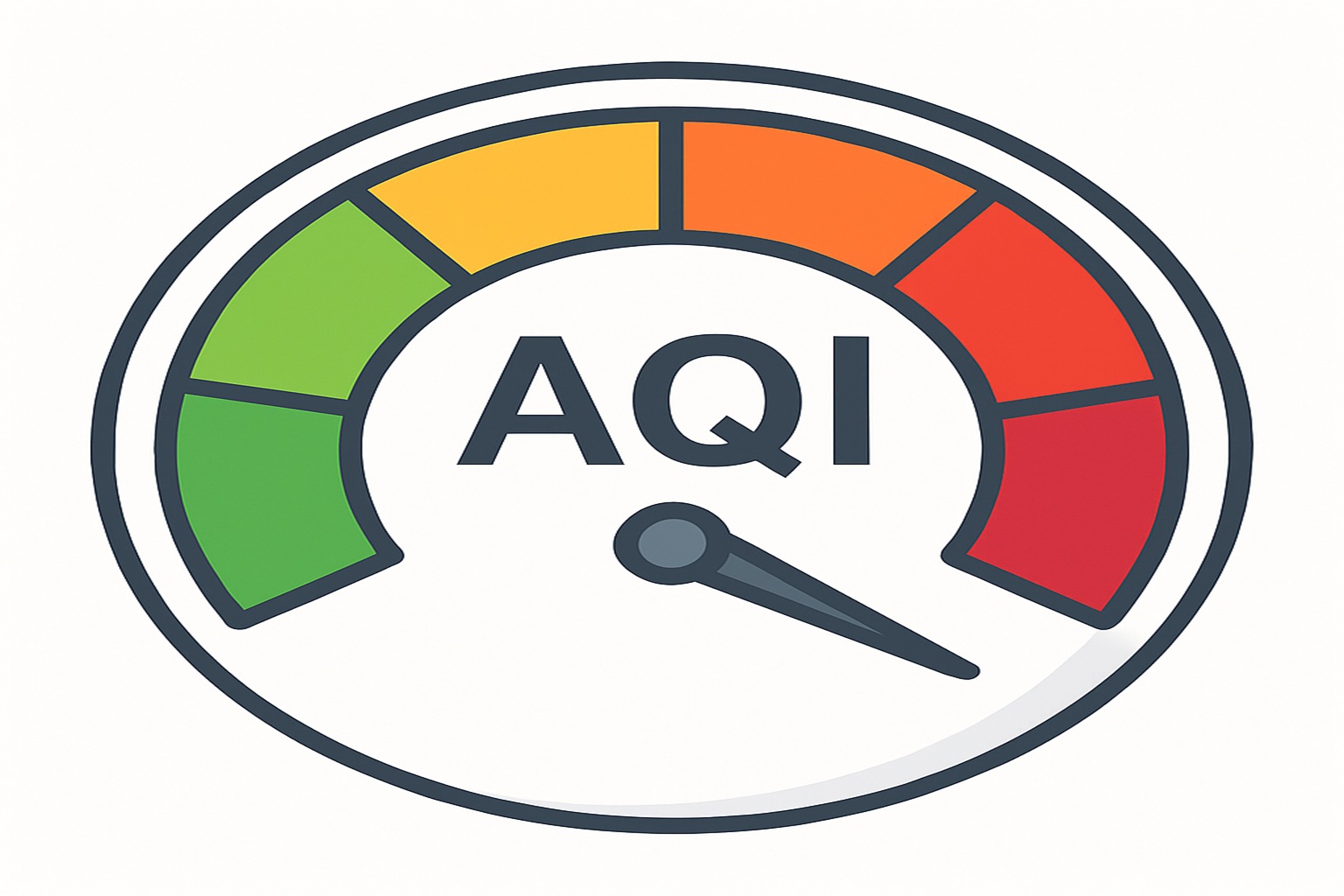
Air Quality Index
Air Quality Index (AQI): What It Is and How to Improve It
Clean air is very important for life. But, in the last few years, air pollution has turned into one of the biggest health worries in the world. People use the Air Quality Index (AQI) to check how dirty the air is. It shows you if the air nearby is okay to breathe or if it can be bad for you.
What Is the Air Quality Index (AQI)?
The Air Quality Index (AQI) uses a scale to show how good or bad the air is in your area. It looks at how much of harmful things are in the air like:
- PM2.5 and PM10: These are small bits in the air that can get into your lungs and your blood.
- Ozone (O₃): This gas can make it hard to breathe.
- Nitrogen Dioxide (NO₂): It comes from cars and factories.
- Carbon Monoxide (CO): It is made when fuel burns.
- Sulfur Dioxide (SO₂): Factories and power stations let this gas out.
The AQI scale generally ranges from 0 to 500:
- 0–50 (Good): The air is clean and safe to breathe.
- 51–100 (OK): It is fine for most, but people who feel air changes quick could feel a little impact.
- 101–200 (Unhealthy): It can be bad for children and others who feel changes in the air more.
- 201–300 (Very Unhealthy): This can hurt all people. Do not spend time outside.
- 301–500 (Hazardous): The air is a real danger. Stay inside.
Why Is AQI Important?
AQI lets people know when it is safe to be outside. When the AQI goes over 200, schools will stop sports events. People who have asthma should stay inside during this time.
Bad air quality can make you cough or feel sore, but it can do more than that. It can cause long-term sickness like asthma, heart trouble, or even cancer in the lungs.
How to Reduce Air Pollution and Improve AQI
Here are some simple things you and your community can do to help the air stay clean:
1. Reduce Vehicle Use
Use public transport, cycle, or walk when you can. Carpooling and electric cars also help lower emissions.
2. Control Industrial Pollution
Factories need to put in equipment that helps fight pollution. They should also change to cleaner technologies.
3. Avoid Burning Waste
Open burning of garbage and crop waste puts out bad smoke and tiny bits into the air. It’s better to use composting and recycling instead.
4. Plant More Trees
Trees take in carbon dioxide and let out oxygen. Plants and trees in the city help make the air better.
5. Use Clean Energy
Switch to LPG or electric stoves. Do not use coal or wood for cooking. Help share about energy that comes from wind and the sun. This is good for the air and helps keep the earth safe.
6. Check AQI Regularly
You can use the government websites or apps to check the air quality near you. This helps you plan when to go outside or do things outdoors.
Government and Citizen Initiatives
India’s National Clean Air Programme (NCAP) and projects like “Swachh Vayu” want to lower small particle pollution by 40% by the year 2026. People can help with this. You can choose habits that are good for nature, let others know when you see burning that is not allowed, and talk to people about how clean air matters.
Final Words
Air quality affects the health of all people and the world we live in. Knowing about the Air Quality Index (AQI) helps us move toward cleaner air. There are some small things we can do, like use eco-friendly transport, not burn waste, and plant trees. If we all work together, we can make the future better and greener.





